SUMMARY
This is AI generated summarization, which may have errors. For context, always refer to the full article.
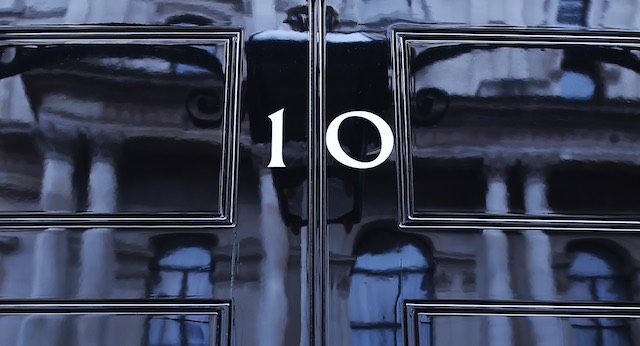
LONDON, United Kingdom – British Prime Minister David Cameron warned voters they face a “stark choice” in May’s tight general election as he kicked off campaigning Monday, March 30, after a ceremonial visit to Queen Elizabeth II.
Cameron met the 88-year-old head of state at Buckingham Palace to formalize the dissolution of parliament before a May 7 election expected to be the closest in decades as his Conservatives battle Ed Miliband’s opposition Labour party.
The short, chauffeur-driven journey from 10 Downing Street up The Mall to Buckingham Palace was once a constitutional necessity for British premiers but is now a mere courtesy call following the introduction of fixed-term parliaments in 2011.
Cameron, who remains prime minister for the duration of the election campaign, addressed voters back at Downing Street afterwards.
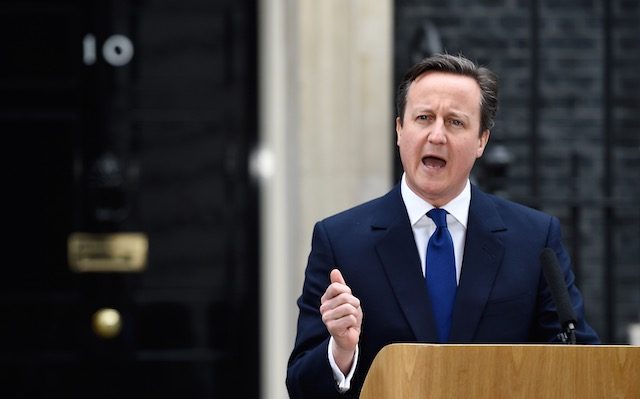
“In 38 days’ time you face a stark choice. The next prime minister walking through that door will be me or Ed Miliband,” Cameron, 48, said.
“After 5 years of effort and sacrifice, Britain is on the right track.”
Cameron and other party leaders then headed off for campaign visits on the “battle buses” in which they will spend much of the coming weeks criss-crossing the country.
Meanwhile, the Queen issued a formal declaration of “our royal will and pleasure” under which a new parliament will be formed on May 18.
No outright majority
Opinion polls suggest that neither the center-right Conservatives nor center-left Labour will win an outright majority in the 650-seat House of Commons.
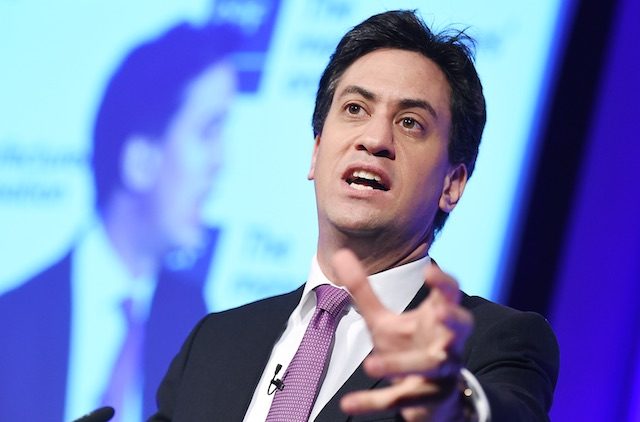
Instead, one of them could have to team up with a smaller party such as the Liberal Democrats or, for Labour, the pro-independence Scottish National Party (SNP) on a formal or informal basis to govern.
The Conservatives have been senior partners in a coalition government with the centrist Liberal Democrats since 2010 but are battling to win enough seats in the House of Commons to govern alone this time.
The party once led by Margaret Thatcher is focusing its campaign on the economy. Britain has emerged from recession and into growth under the coalition but has also faced deep austerity cuts to government spending in areas like welfare.
Labour has vowed to do more to help struggling middle and lower income voters while promising to do more to protect the state-run National Health Service (NHS), which provides mostly free, across the board healthcare.
Small parties, big role
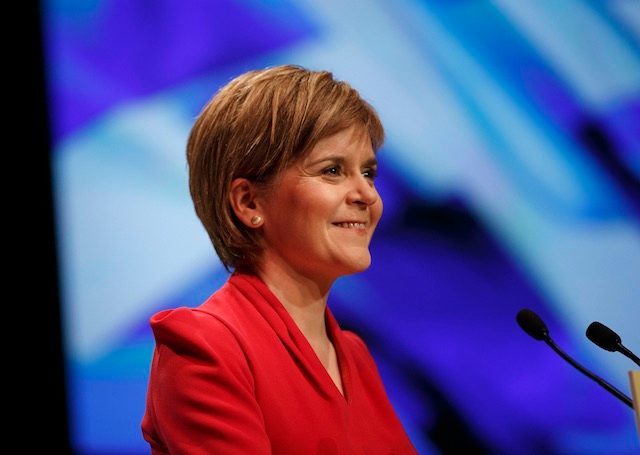
Miliband’s party on Monday unveiled its manifesto for business in which it again committed itself to membership of the European Union.
Cameron has promised to hold an in-out referendum on EU membership by 2017 if the Conservatives win on May 7.
“Our long-term future lies inside, not outside, the European Union,” Miliband, 45, told an audience in the City of London financial district.
Labour also took out a full-page advertisement in Monday’s Financial Times newspaper quoting 6 business leaders on the importance of Britain staying in Europe.
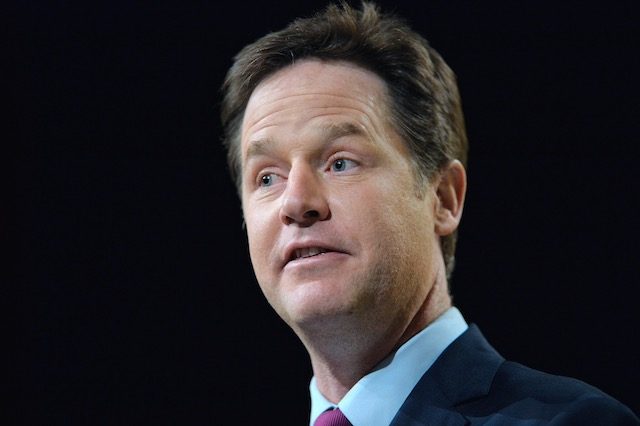
But that sparked controversy after one of those quoted, Siemens UK chief executive Juergen Maier, indicated he was uncomfortable with his words being used in a party political context.
As the Conservatives and Labour fight for victory, Britain’s smaller political parties are set to play a key role in deciding who can form a government after the election as the main rivals struggle for a majority.
Nick Clegg, Cameron’s deputy prime minister and leader of the Liberal Democrats, visited a hedgehog sanctuary as he attempted to highlight his party’s claim to be a centrist makeweight for one of the two main parties.
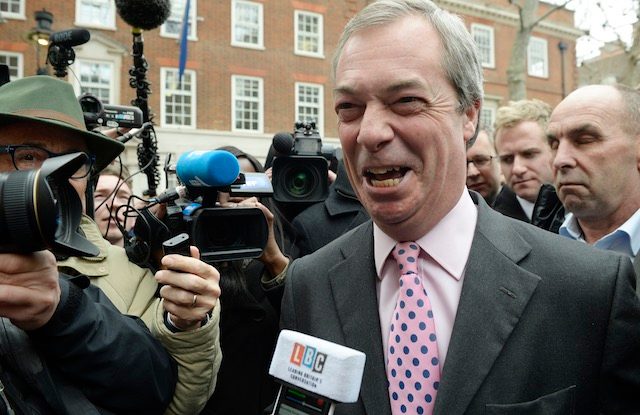
The Liberal Democrats currently have 57 MPs but are expected to lose around half of them.
By contrast, the SNP led by Nicola Sturgeon is set to make major gains in Scotland and has signaled that it would be open to governing alongside Labour.
The anti-EU United Kingdom Independence Party (UKIP) has offered to prop up the Conservatives in return for a referendum on leaving the European Union this year.
Its leader Nigel Farage predicted it would win a double-digit number of seats as he launched a list of 5 campaign pledges Monday, although experts predict the figure will be closer to a handful. – Katherine Haddon, AFP / Rappler.com
Add a comment
How does this make you feel?
There are no comments yet. Add your comment to start the conversation.